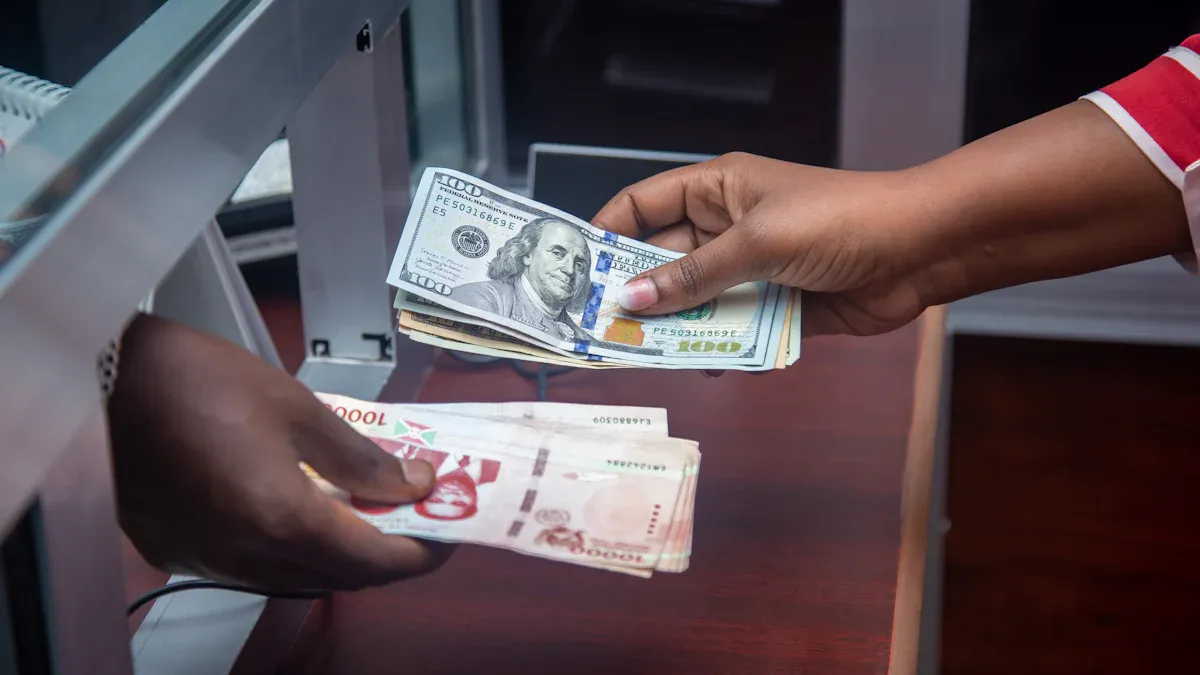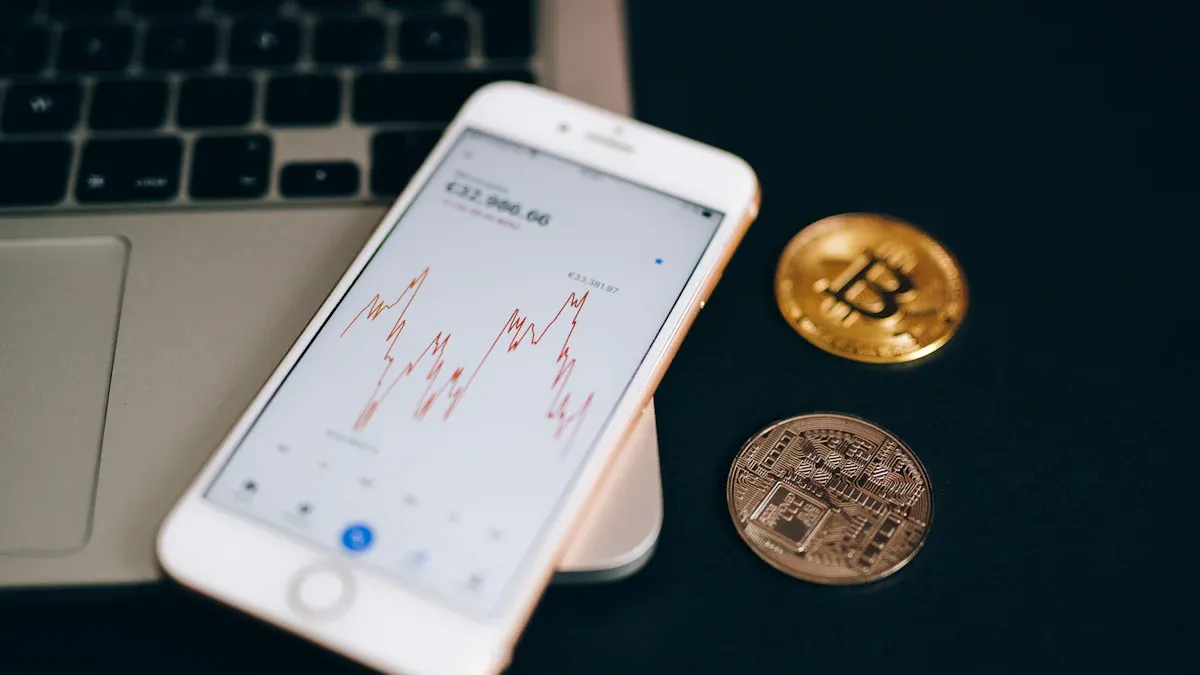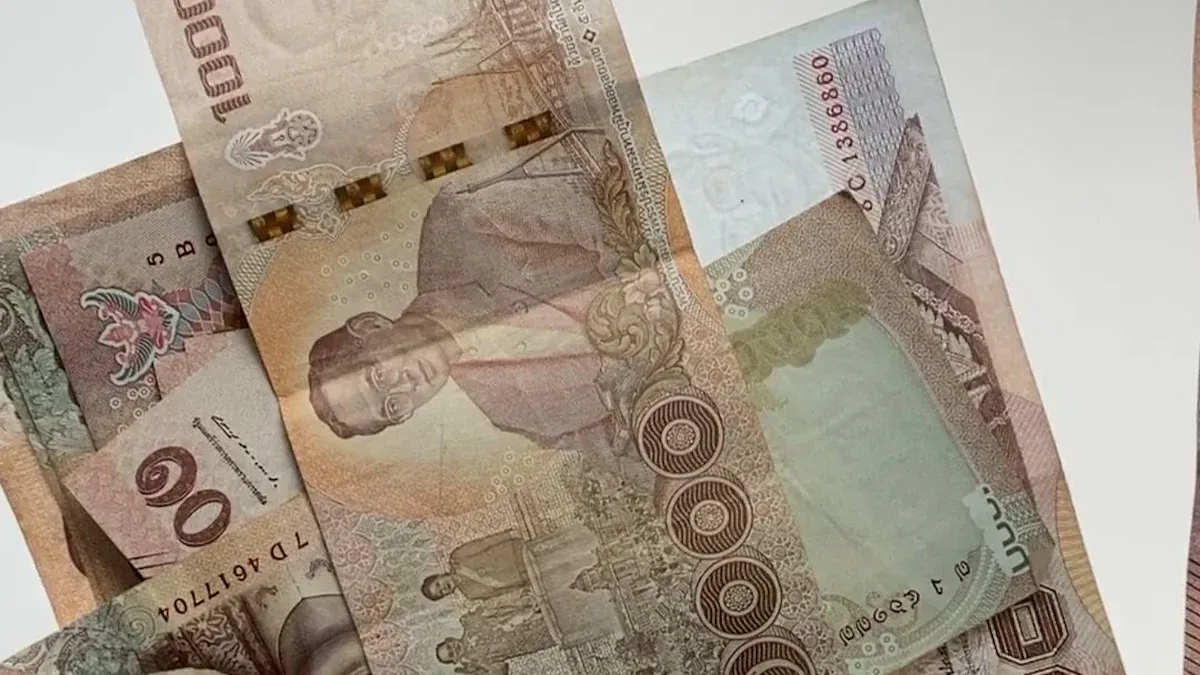- EasyCard
- Trade
- Help
- Announcement
- Academy
- SWIFT Code
- Iban Number
- Referral
- Customer Service
- Blog
- Creator
What is the best way to exchange $400 into Ghanaian cedis? How can one get the highest exchange rate?

Image Source: pexels
Are you planning to exchange 400 USD to Ghanaian Cedis? You need a straightforward answer.
For such a small amount, the best methods are twofold: using online remittance services or exchanging cash at reputable forex bureaus in Ghana.
This guide skips complex theories. You’ll get specific steps and practical tips to ensure your 400 USD converts to as many Cedis as possible.
Key Points
- Online remittance services are the best way to exchange 400 USD. They offer good exchange rates and convenient services.
- The Wise platform provides rates close to the real mid-market rate. It’s ideal for transfers to bank accounts.
- Platforms like WorldRemit and Remitly are great for quick transfers to mobile wallets.
- In Ghana, you can exchange cash at licensed forex bureaus. Avoid street black-market deals.
- Use tools like Monito or Wise to compare exchange rates. This helps you find the best exchange method.
Online Remittance: A Convenient and Efficient Choice

Image Source: pexels
For an amount like 400 USD, online remittance services are typically your best option. These platforms are designed for international transfers, with simple processes, and offer exchange rates and fees that are more competitive than traditional banks.
Exchange Rate Advantages of Online Services
You might wonder why online services offer better exchange rates. The answer lies in their operational model and focus on rate transparency.
First, you need to understand a key concept: mid-market rate.
The mid-market rate is the midpoint between the buy and sell prices in the global forex market. It includes no profit margins or hidden fees, representing the fairest value of a currency at a specific time. Think of it as the “true” exchange rate.
Traditional banks and many exchange services add a markup to this rate for profit, meaning you get an unfair rate. However, modern online platforms like Wise are known for offering rates close to or at the mid-market rate, charging only a transparent service fee. This model ensures you know exactly where your money is going.
The table below clearly shows the gap between different providers’ rates and the mid-market rate.
As shown, some providers’ rates may be significantly lower than the mid-market rate, meaning your 400 USD converts to fewer Cedis.
Comparison of Popular Platforms
To help you choose, we’ve compared several popular platforms for sending money to Ghana. Note that exchange rates and fees are dynamic, and the information below is based on current data for reference.
| Platform | Rate Features | Fee (for 400 USD Transfer) | Delivery Speed | Supported Receiving Methods |
|---|---|---|---|---|
| WorldRemit | Rate includes a small markup | Typically a fixed fee, e.g., USD 2.99 | Mobile wallet: Nearly instant; Bank account: Less than a day | Supports: MTN Mobile Money, Vodafone Cash, AirtelTigo, Bank account |
| Remitly | Offers “Economy” and “Express” rates | Varies by speed option | Mobile wallet: Instant (Express); Bank account: 3-5 days (Economy) | Supports: MTN Mobile Money, AirtelTigo, Vodafone Cash, Bank account |
| Sendwave | Rate includes a small markup | Usually no fee (cost built into rate) | Mobile wallet: Instant | Supports only: MTN Mobile Money, Vodafone Cash |
| Wise | Uses mid-market rate | Transparent, low variable fee | Bank account: 1-2 business days | Supports only: Bank account |
Key Differences Explained:
- Prioritizing Speed and Mobile Money? Choose WorldRemit, Remitly, or Sendwave. They can instantly send funds to Ghana’s most popular mobile wallets.
- Seeking the Best Rate? Choose Wise. It uses the mid-market rate, ideal for bank account transfers, maximizing your received amount. For example, at 1 USD = 10.75 GHS, 400 USD converts to 4,300 GHS (before fees).
Online Remittance Guide
The process of using these platforms is straightforward, requiring just a few steps. Here’s a general process:
- Create an Account: Register via the platform’s app or website. Provide your email and set a secure password.
- Set Up the Transfer: Select “Ghana” as the recipient country, then choose the receiving method, e.g., “Mobile Money” or “Bank Deposit.”
- Enter Recipient Information: Accurately provide the recipient’s name, city, and critical details—mobile wallet number or bank account information.
- Enter Transfer Amount: Input the amount you want to send, i.e., 400 USD. The system will display the Cedi amount the recipient will receive and all fees.
- Pay the Fees: Choose your payment method. You can use bank transfers or debit/credit cards. Card payments are typically faster.
Operation Tip: Before starting the transfer, confirm with your recipient in Ghana that their mobile wallet number or bank account details are accurate. This is key to ensuring funds arrive safely and quickly.
Finding the Best Way to Exchange 400 USD

Image Source: pexels
If you choose to bring cash to Ghana, finding a safe and fair exchange point is crucial. Unlike online remittances, cash exchanges require you to visit in person, but they can still offer competitive rates if you know where to go and how to proceed.
Choosing the Best Exchange Locations
When holding 400 USD in cash, your top choice should be licensed forex bureaus.
These bureaus are widespread in major Ghanaian cities, especially in commercial areas of Accra and Kumasi. Compared to airport or hotel exchange counters, forex bureaus have lower operating costs and more competition, often providing better rates. This is your starting point for finding the best way to exchange cash.
Important Note: Avoid “black market” street deals. While their rates may sound tempting, these transactions are illegal and carry high fraud and safety risks. Your funds’ safety outweighs minor rate advantages.
In Accra, some reputable forex bureaus are known for competitive rates:
- Albrim Forex Bureau: Proudly offers excellent rates for major currencies like USD.
- CitiCenter Forex Bureau LTD: Encourages clients to negotiate for better rates.
- Acorn Forex Bureau: Known for quality customer service and competitive rates.
How to Shop Around
After finding a good forex bureau, the next step is to compare rates to secure the best deal. Simply walking into the first exchange point isn’t the best approach. Follow these practical steps to ensure your 400 USD maximizes value:
- Understand the Basics: Forex transactions in Ghana are mainly through banks and licensed forex bureaus. Banks are more formal, while forex bureaus are more flexible, often preferred for tourists exchanging small amounts.
- Compare Rates in Advance: Before heading to an exchange point, use platforms like CediRates to quickly check real-time buy and sell prices from banks and bureaus. This gives you a clear sense of the day’s market rates.
- Strategize Timing: The USD to Cedi rate fluctuates daily. Monitor rate trends and exchange when the Cedi is relatively weak to get more Cedis for your 400 USD.
- Negotiate: While bank rates are fixed, many forex bureaus may offer slightly better rates than posted for transactions like 400 USD. Politely ask, “Is this the best rate?” to potentially get a better deal.
- Confirm Final Amount: Before handing over cash, confirm with the staff the total Cedis you’ll receive and ask if there are any hidden fees. A professional bureau will clearly disclose all details.
Avoiding Local Exchange Risks
When exchanging cash in Ghana, safety is paramount. You need to learn how to identify legitimate bureaus and watch for common scams.
First, ensure your chosen forex bureau is licensed by the Bank of Ghana.
According to official data, there are over 300 licensed forex bureaus in the Greater Accra region alone. This means you have plenty of legitimate options, eliminating the need to take risks.
You can request to see the bureau’s license or verify its legitimacy through the Bank of Ghana’s official channels. Here are examples of licensed forex bureaus to help you understand their format:
| No. | Forex Bureau Name | Address | Region |
|---|---|---|---|
| 1 | 88 Forex Bureau Limited | Madina, Accra | Greater Accra |
| 2 | 108 Forex Bureau Limited | Madina, New Rd, Accra | Greater Accra |
| 3 | 1st African Forex Bureau Limited | Kokomlemle, Accra | Greater Accra |
| 4 | 1st Choice Forex Bureau Limited | West Airport, Accra | Greater Accra |
| 5 | 1st Light Forex Bureau Limited | Kaneshie, Accra | Greater Accra |
Beyond choosing legitimate bureaus, stay vigilant for common fraud tactics. Scammers often exploit tourists’ unfamiliarity with local conditions.
Safe Exchange Tips
- Beware Unrealistic Promises: If someone offers a rate far above the market average, it’s likely a scam.
- Reject High-Pressure Sales: Scammers create urgency to rush your decision. Stay calm and don’t hand over money under pressure.
- Avoid Unsolicited Help: Outside banks or bureaus, if someone offers “better” exchange options, firmly decline. Complete all transactions inside licensed bureaus’ counters.
- Trust Your Instincts: If a deal or person feels off, walk away immediately. Protecting your funds is the priority.
Following these simple principles ensures a safe and smooth cash exchange, setting the stage for an enjoyable trip to Ghana.
Weighing the Pros and Cons of Different Exchange Methods
Each exchange method has unique advantages and disadvantages. Understanding these differences helps you make informed decisions based on your needs—whether prioritizing convenience, speed, or the highest rate.
Online Remittance Services
Online platforms offer the convenience of completing transfers from home. They typically have fast transaction speeds and competitive rates.
| Advantages | Disadvantages |
|---|---|
| Highly convenient: Easily transfer via phone or computer with intuitive interfaces. | May incur fees: While convenient, platforms charge transfer fees, varying by provider. |
| Fast and efficient: Funds reach recipients quickly, some services completing in seconds. | Limited payment options: Some platforms support fewer payment methods, so confirm compatibility. |
| Competitive rates: Online services often offer better rates than banks, maximizing funds’ value. | Reliant on internet: Requires stable internet, which may be challenging in poor network areas. |
| Secure and reliable: Platforms use encryption and strict verification for safe transactions. |
Local Forex Bureaus in Ghana
Exchanging at local forex bureaus in Ghana is a traditional way to get good rates for cash.
- Advantages
- High USD Acceptance: USD is one of the most popular currencies in Ghana’s forex market, often fetching good rates.
- Many Locations: Forex bureaus are easily found in cities and airports.
- Disadvantages
- Safety Risks: Carrying cash always involves risks. Stay vigilant to avoid showing money in public.
- Rate Variations: Bureau rates are slightly below the online mid-market rate, with different buy and sell rates.
- Fraud Risks: Choose reputable bureaus to avoid counterfeit currency or scams.
For small cash exchanges, this is a viable option, provided you prioritize safety.
Airport and Hotel Exchanges
One-Word Advice: Avoid unless urgent.
Exchanging USD at airports or hotels results in very poor rates. These locations leverage their convenience, embedding high profits in the rates. While convenient, you lose significant money, making this an unadvisable primary method.
Home Country Bank Exchanges
Exchanging Ghanaian Cedis at your home country’s bank before departure is typically the least efficient and most expensive option. Banks offer poor rates and high fees, and many may not even have Cedi cash reserves.
ATM Withdrawals in Ghana
Using your bank card to withdraw Cedis directly from ATMs in Ghana is a convenient backup.
- Advantages: Simple operation, with ATMs widely available.
- Disadvantages: You may face two fees: one from the Ghanaian ATM and another from your bank for overseas transactions. These fees quickly add up, reducing your final amount.
Practical Tools for Securing the Highest Exchange Rate
Information is power, especially in forex exchanges. You can use free online tools to find the best rates in minutes, ensuring your 400 USD converts to the most Cedis.
Online Rate Comparison Websites
Before deciding on an online remittance service, spending a few minutes on comparison websites is wise. These platforms save you time and money.
- Monito: A powerful search engine for comparing international remittance services. Enter the amount and destination, and it displays real-time rates, fees, and delivery speeds across platforms.
- CompareRemit: Equally useful, it helps find the best rates, lowest fees, and fastest transfer times. Many users discover efficient services through it.
A user shared that a friend recommended Taptap Send, which they found convenient for Ghana transfers. Taptap Send is one of many services reviewed on CompareRemit.
Official and Real-Time Data Sources
Exchange rates fluctuate constantly. The USD to Cedi rate can vary significantly; historically, it once reached 1 USD to over 15 GHS. Thus, checking rates in real time is crucial.
Use these tools to access data closest to the “true” rate:
- Wise and Xe: These platforms offer free currency converters and charts based on real-time mid-market rates, serving as excellent benchmarks for evaluating other providers’ quotes.
- Xe’s currency charts use real-time mid-market rates.
- You can select any two currencies to view historical trends, up to 10 years.
- These tools are for information only, helping you understand the fairest rate available.
- Currency.Wiki and exchange-rates.org: These sites provide detailed real-time rate information and historical data to aid decision-making.
- Bank of Ghana: The most authoritative source. The Bank of Ghana’s website publishes “Daily Interbank FX Rates”. While you can’t access this rate directly, it serves as an official benchmark to assess whether local bureau rates are fair.
To exchange 400 USD to Ghanaian Cedis, your choices are clear. For remittances, prioritize online platforms like Wise or WorldRemit. If carrying cash, exchange at reputable forex bureaus in cities like Accra.
Final Action Advice: Regardless of the method, spend a few minutes using tools like Monito or Wise to compare rates. This helps you avoid unnecessary fees, ensuring your funds’ maximum value.
FAQ
What if I want to exchange more than 400 USD?
For larger amounts (e.g., over 1,000 USD), online services like Wise using mid-market rates are typically the best choice. Their lower fee rates save you more money.
Can I use EUR or GBP to exchange for Cedis?
Yes. Forex bureaus in Ghana widely accept major currencies like EUR and GBP. Online platforms also support multiple currencies. Simply select your held currency when transferring.
Is it safe to carry USD cash in Ghana?
Carrying cash always involves risks. Take these precautions:
- Store money in different places.
- Avoid counting money or showing wealth in public.
- Exchange only at reputable licensed forex bureaus.
Which day of the week offers the best exchange rate?
Rates fluctuate daily, with no fixed “best day.” The best approach is to check real-time rates using tools like Wise or Monito before exchanging, then choose the optimal platform or timing.
*This article is provided for general information purposes and does not constitute legal, tax or other professional advice from BiyaPay or its subsidiaries and its affiliates, and it is not intended as a substitute for obtaining advice from a financial advisor or any other professional.
We make no representations, warranties or warranties, express or implied, as to the accuracy, completeness or timeliness of the contents of this publication.




Contact Us
Company and Team
BiyaPay Products
Customer Services
is a broker-dealer registered with the U.S. Securities and Exchange Commission (SEC) (No.: 802-127417), member of the Financial Industry Regulatory Authority (FINRA) (CRD: 325027), member of the Securities Investor Protection Corporation (SIPC), and regulated by FINRA and SEC.
registered with the US Financial Crimes Enforcement Network (FinCEN), as a Money Services Business (MSB), registration number: 31000218637349, and regulated by FinCEN.
registered as Financial Service Provider (FSP number: FSP1007221) in New Zealand, and is a member of the Financial Dispute Resolution Scheme, a New Zealand independent dispute resolution service provider.



















